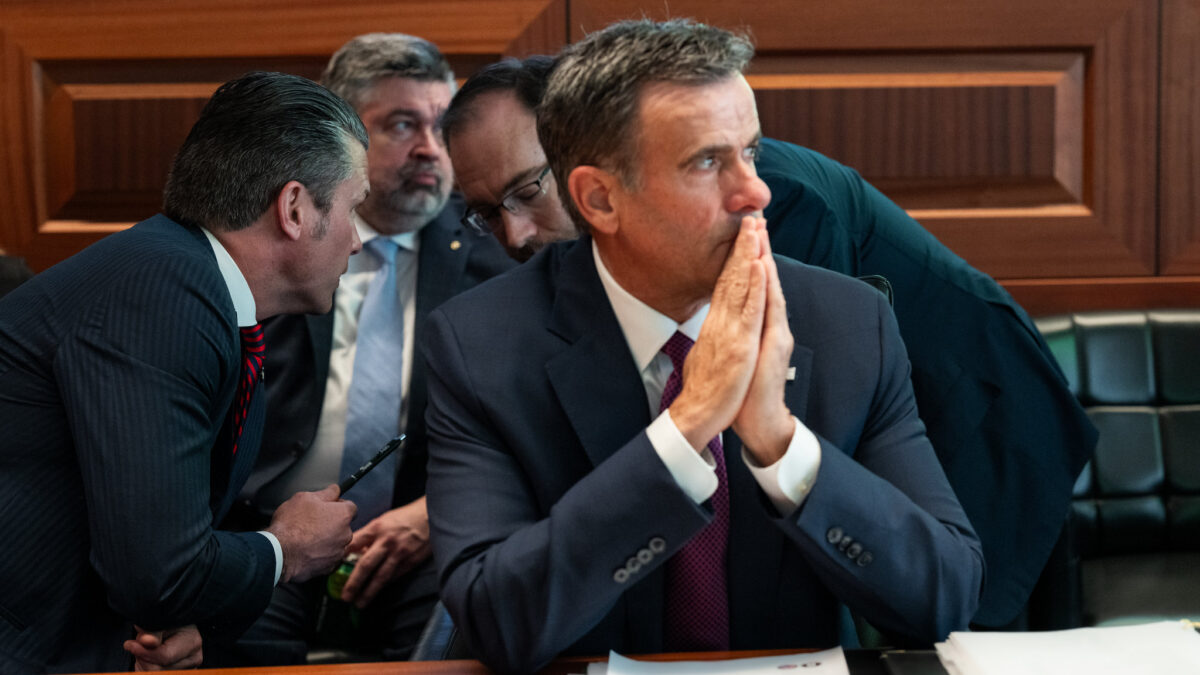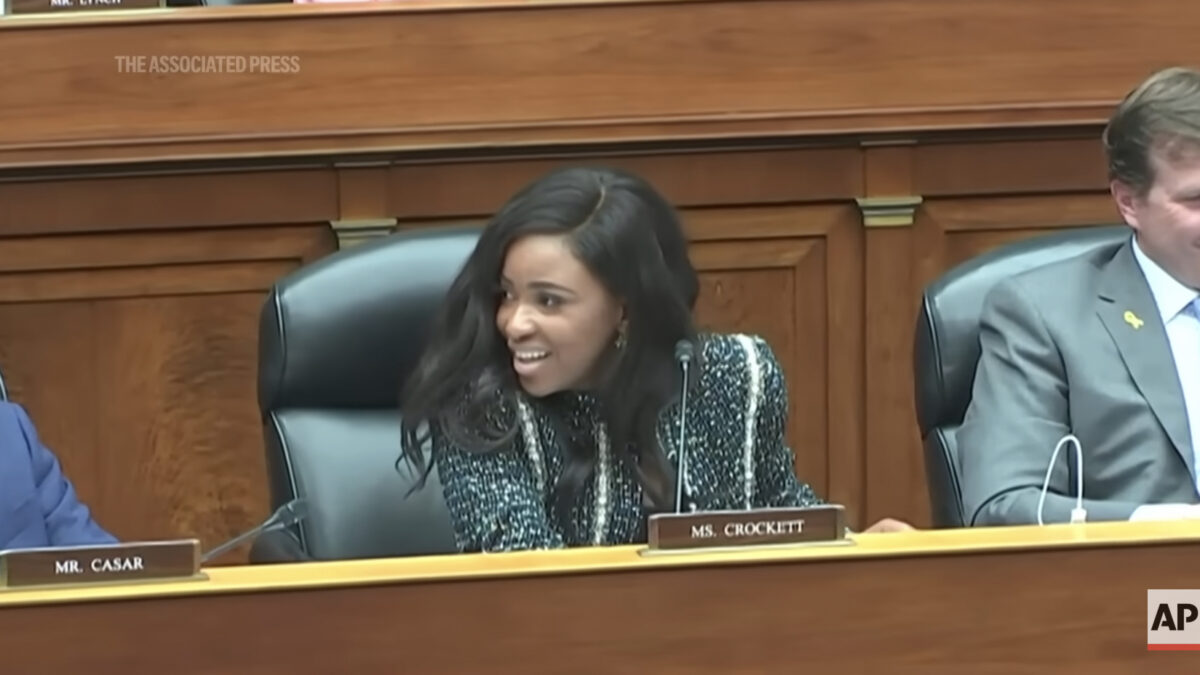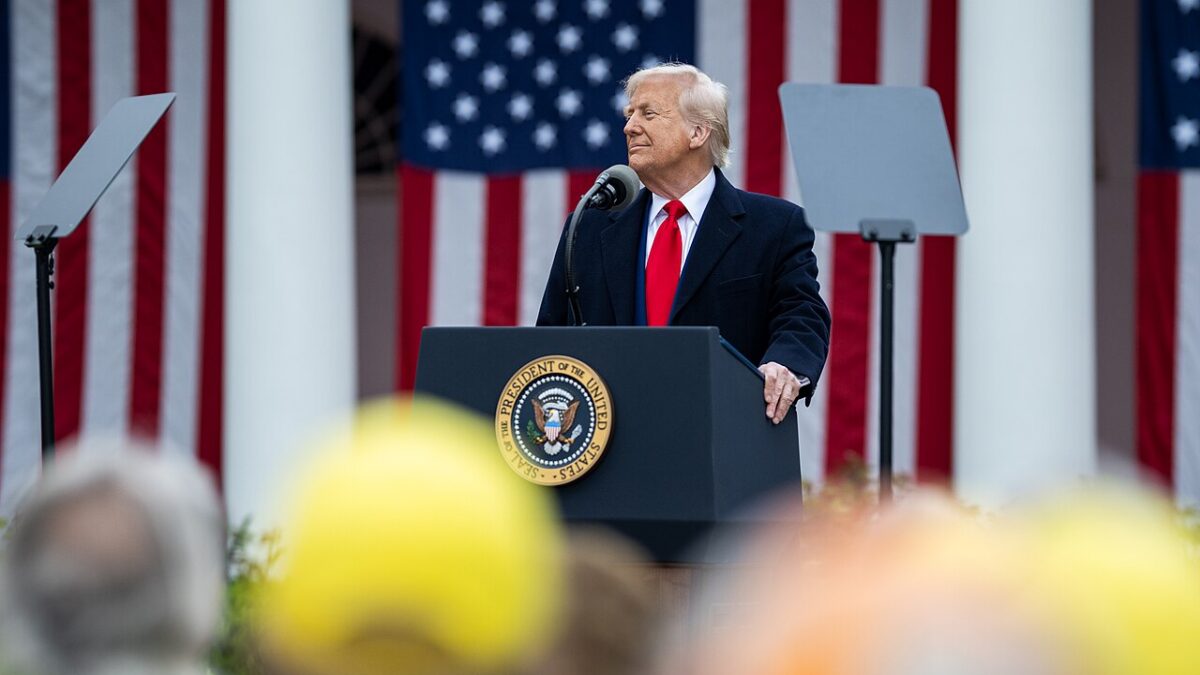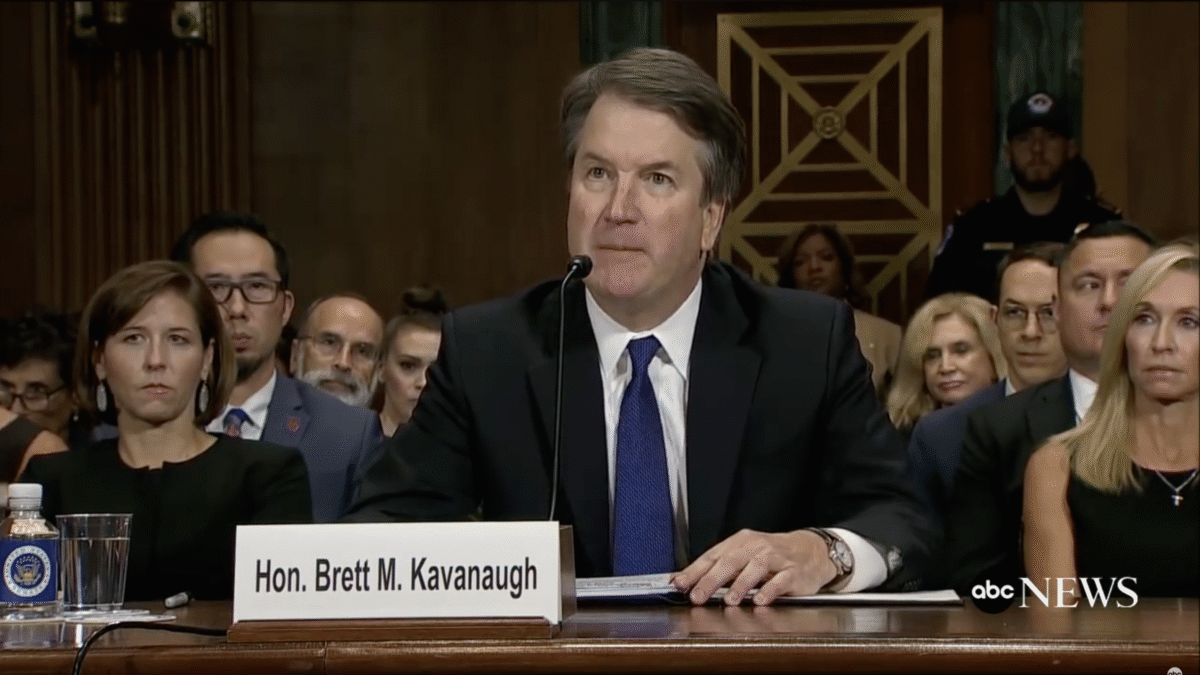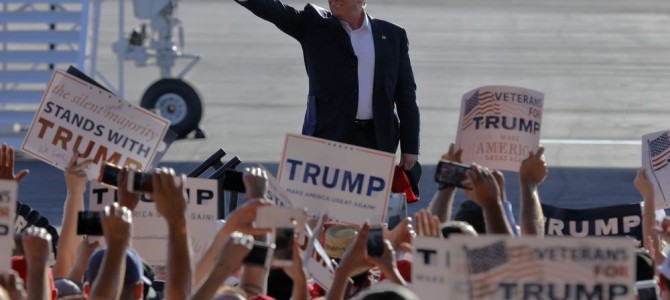
Donald Trump claims he’s attracting new voters to the Republican Party, but you’d never be able to tell from watching people flee the GOP. The Donald brags about getting the most votes ever for a Republican nominee, and that’s true, but it’s also meaningless; it’s like saying he got more votes than George Washington got for president, which is also true and equally meaningless. He’s the least popular Republican nominee in recent history, even managing to underperform John McCain in percentage of the primary vote.
Not only does a majority of the GOP rank and file still prefer another candidate—another Trump Dubious Achievement Trophy—but some of the party’s best-known names are fleeing, including, most recently George Will. Faithful GOP supporters are heading for the exits, just as I did in 2012 when Newt Gingrich won South Carolina and a crowd shouted “Yeah!” when the primary candidates asked if people without insurance should be allowed to die.
So why did I rejoin the Republican Party in time for the 2016 primaries? Why, as my Federalist colleague Rich Cromwell asked, am I the guy who felt the need to run back into the burning building? Or, as a conservative follower on Twitter put it: “I admire your John McClane in Nakatomi Plaza mentality.”
Maybe that’s it right there. The party has been taken over by a gang of thugs, and I’ll be damned if I’ll hand the Party of Lincoln over to Trump and his venal goons without making a stand. Nine million lousy presidential candidates in the world and I gotta oppose one with hands smaller than my sister’s? So be it. If the GOP is Nakatomi Plaza, then all I can say is: Welcome to the party, pal.
“Come out to the coast, we’ll get together, have a few laughs…”
I should never have quit the Republican Party. I joined in 1979 when I turned 18, and like a separation in a long marriage, I was never quite comfortable as an Independent. In part, of course, this is because I cannot support the Democrats and I rooted for their loss in every national election. Over the course of 35 years, I have split my ticket between Democrats and Republicans on rare occasions, but I never remotely considered becoming a Democrat. I also never wanted to see the GOP destroyed, as Trump’s candidacy now threatens to do.
By my nature I am a conservative, and rebellions and populist protests are not my cup of tea. I believe in moderate, continual, measured change. Leaving in a fit of disgust was a mistake—not least because when the moderates leave, the kooks and extremists take over.
“You want money? What kind of terrorists are you?”
“Who said we were terrorists?”
In part, staying in the Republican Party is a way of showing, even if only one person at a time, that parties are about ideas and platforms. They are not merely vehicles for celebrities. Trump has no serious political ideas beyond the kind of vaguely leftish social permissiveness endemic to his class of libertines. Just as Hans Gruber didn’t care a whit about terrorism (“Asian Dawn?” “I read about them in Time magazine”) Trump likewise couldn’t care less about the economy, national defense, or any of the other boring problems that occupy real presidents.
Trump might even be in it just for the money. The recent, ah, uncertainty about his actual wealth, his refusal to release his tax forms, and his flim-flammery about whether he’s “forgiving” a debt to his own campaign all suggest that in November when the Republicans are on the roof waiting to be blown to smithereens, Trump will be downstairs, stuffing bearer bonds into a suitcase.
“Who are you then?”
“Just a fly in the ointment, Hans. The monkey in the wrench. The pain in the ass.”
I don’t think any Republican should quit the party in this election cycle, because an exodus from the party is exactly what Trump wants. He’s bragged repeatedly that he can win without “establishment” Republicans, and he’s tailored a message aimed squarely at white males who, at best, have finished high school and don’t care about parties at all. He really believes there are enough of these guys to win an election—or maybe he doesn’t, and just doesn’t care.
Either way, there’s no reason to allow Trump to go to Cleveland with the illusion of a party that is united only because it has shed everyone who can read a map or do basic math. If everyone protesting Trump were to quit, then Trump will truly be able to say he’s united the party, much the same way (as Rebecca Cusey noted recently) that the late Marion Barry united Washington DC: by pitting everyone against everyone else and encouraging those who don’t like it to leave.
When Trump says he speaks for all Republicans, we should do our best to ensure such a claim is never true.
“Let’s put it in my terms: you’re in a hostile takeover, you snatch us up for some green mail, but you’re not expecting some poison pill to be running around the building, am I right? Hans, bubbie: I’m your white knight.”
Another reason to stay is to rebel against the utter cowardice and ineptitude of the current GOP leadership. Almost a year ago, I called for excommunicating Trump from the GOP, much as we did with David Duke in the 1990s. But Reince Priebus and the GOP panjandrums, like the hapless and doomed Harry Ellis trying to negotiate with Gruber, believed they could get Trump to deal.
This was not only idiotic, it betrayed the very idea of a “party” as something that communicates a message besides “whatever you want.” Indeed, it one of the greatest ironies of this election season that people who claimed to be fighting the “GOPe”—and who insisted they had no voice—were in fact pandered to relentlessly. The Republican Party, far from ignoring these voters, was too responsive to them. Parties should lead as well as follow. They are not just public utilities where anyone can wheel and deal away the party’s principles.
The Republican Party leadership, far from stopping Trump, was his enabler. They made it possible for him to hijack debates, go to war with other Republicans, and generally to do everything parties are supposed to prevent. (Compare how the Democrats handled Bernie Sanders and finally extinguished his ridiculous run at the White House.) As another Twitter wit, paraphrasing Gruber, put it: “You ask for miracles, Theo? I give you the G…O…P.”
The Republican Party used to stand for something. The only way it will continue to stand for something is if the people who care about ideas and principles stay in it.
“Do you really think you have a chance against us, Mr. Cowboy?”
Sure, it seems quixotic. For all the talk about a rebellion in Cleveland, a revolt that dumps Trump is unlikely. The real stand against Trump will take place in November, when Republicans must wrap the fire hose around their waists and jump off the rigged roof onto which Trump has herded them. This means accepting Trump’s loss and, as Will put it, gritting our teeth for four years and trying again.
Trump can be beaten, but the price is going to be steep. It means losing some Supreme Court nominations, putting up with Clinton’s smug cackle for a term, and cleaning house inside the party. But the only way to have a voice in that process is to stay. One of the reasons the GOP is in its present condition is because it was hijacked by people—like Trump—who came from outside the party, didn’t participate in its debates, and either didn’t vote or voted for other candidates (like Barack Obama).
Can the party be saved? Staying is the only way to find out. Yippie ki yay.






